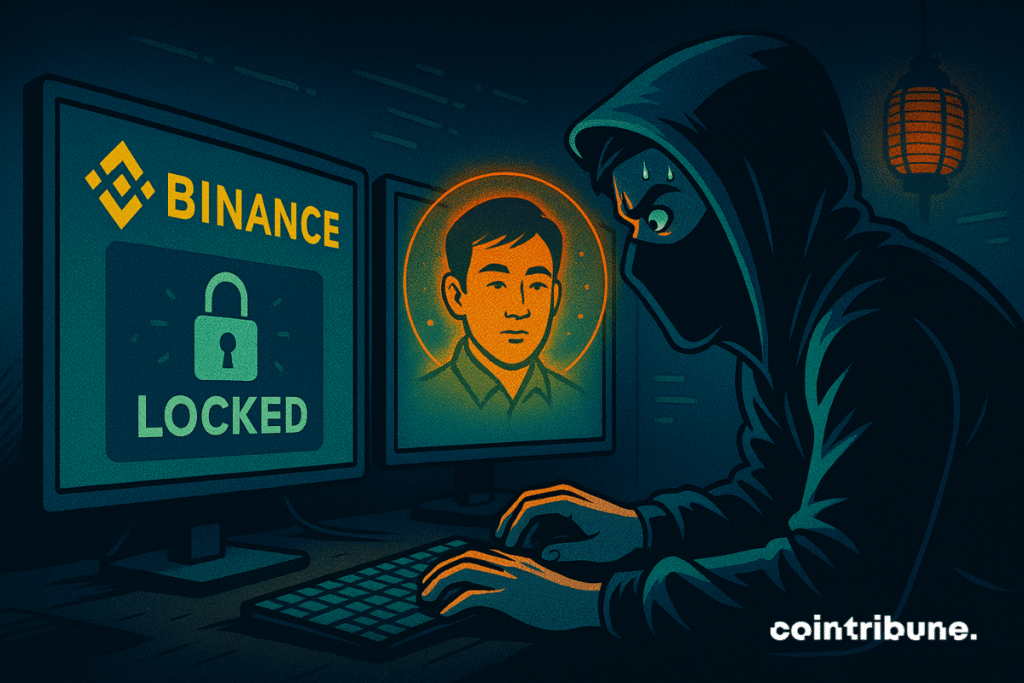8h05 ▪
4
min read ▪ by
As crypto adoption accelerates, a Binance Research study conducted with 30,000 investors in Asia reveals a notable increase in their cybersecurity skills. This report highlights a central paradox: the more usage becomes widespread, the more technical vulnerabilities multiply. Between increased caution and persistent vulnerabilities, security standards are evolving, driven by a community of investors who are increasingly well-trained on the challenges of crypto protection.


In Brief
- The latest Binance Research report analyzes the security practices of 30,000 crypto investors in Asia.
- The majority adopt essential protection habits, such as two-factor authentication and address verification.
- Despite these advances, risky behaviors persist, notably storing private keys on connected devices.
- Cybersecurity remains a priority for investors, with strong demand for real-time protection solutions.
Increasing Adoption of Basic Good Practices : Reflexes Now Integrated
The study conducted by Binance Research, based on responses from 30,000 investors in Asia, reveals widespread adoption of so-called “elementary” cybersecurity measures. These actions, once ignored or considered secondary, are now part of the daily routine of crypto investors in the region.
Thus, the report states without hesitation :
Crypto investors are definitely taking security more seriously.
The collected data indicates the increasing professionalization of investors :
- 80.5 % have enabled two-factor authentication (2FA) on their exchange account ;
- 73.3 % take the time to manually verify the recipient’s address before any transaction, thereby limiting sending errors or fraud through malicious copy-paste ;
- More than half of those surveyed would immediately contact their exchange to freeze their assets if a threat is detected ;
- 84 % of investors say they trust the internal security systems of platforms, notably Binance’s SAFU (Secure Asset Fund for Users), a fund dedicated to covering losses in case of a major incident.
These figures show that platforms like Binance are no longer seen merely as technical intermediaries, but as genuine security bulwarks. In return, investors are more involved in securing their accounts, confirming a notable evolution of crypto culture in Asia.
Risky Practices Still Too Widespread
While the Binance study reveals significant progress, it also reports high-risk behaviors that remain widespread. For example, more than a third of investors surveyed still store their private keys on devices connected to the Internet, a major vulnerability against malware attacks.
This trend is even more pronounced in Southeast Asia, where the figure rises to 42 %. Furthermore, only 21.5 % of investors have enabled anti-phishing codes, and just 17.6 % use a whitelist of addresses. The use of advanced protection tools remains marginal.
These gaps highlight a paradox. Although traders are increasingly informed, the gap between awareness and the effective adoption of robust protections remains significant.
The report also reveals that 62.5 % of respondents consider real-time threat interception their top priority, while a majority express growing interest in local protection solutions, such as device-level security alerts.
Jimmy Su, head of security at Binance, emphasizes the need for “localized, accessible, and concrete anti-scam education”. He reminds that “fraudsters’ tactics evolve as fast as the industry itself.”
These findings raise the question of next steps for the industry. The integration of more granular, personalized, and automated cybersecurity solutions seems inevitable. Thus, the challenge goes beyond platform security to strengthening the ecosystem as a whole, placing the investor at the core of the system. Progress toward an adapted security culture is a strategic priority. As investors become more tech-savvy, the entire crypto value chain will need to adapt, or risk seeing its growth slowed by its own vulnerabilities.
Maximize your Cointribune experience with our “Read to Earn” program! For every article you read, earn points and access exclusive rewards. Sign up now and start earning benefits.
Diplômé de Sciences Po Toulouse et titulaire d’une certification consultant blockchain délivrée par Alyra, j’ai rejoint l’aventure Cointribune en 2019.
Convaincu du potentiel de la blockchain pour transformer de nombreux secteurs de l’économie, j’ai pris l’engagement de sensibiliser et d’informer le grand public sur cet écosystème en constante évolution. Mon objectif est de permettre à chacun de mieux comprendre la blockchain et de saisir les opportunités qu’elle offre. Je m’efforce chaque jour de fournir une analyse objective de l’actualité, de décrypter les tendances du marché, de relayer les dernières innovations technologiques et de mettre en perspective les enjeux économiques et sociétaux de cette révolution en marche.
DISCLAIMER
The views, thoughts, and opinions expressed in this article belong solely to the author, and should not be taken as investment advice. Do your own research before taking any investment decisions.

